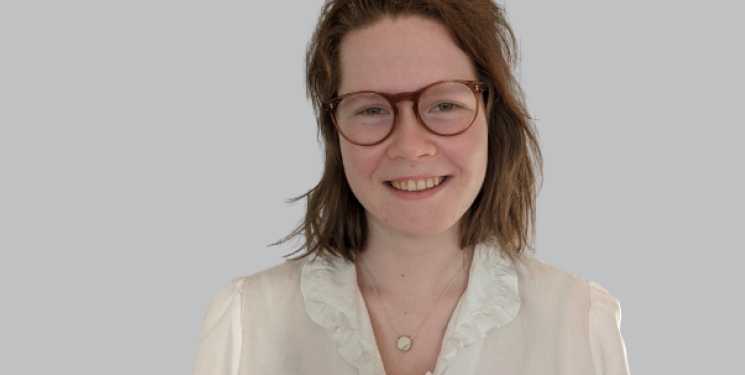It’s that time of year! This month the preliminary programme for the 32nd European Social Services Conference (ESSC) was launched. The 3-day programme, and additional day of free side events, takes place from 25-28th June 2024. With over 60 different organisations from 20 different countries set to present in the various session formats, the conference programme promises to be an enriching and varied experience for delegates.
Covering a wide range of topics pertinent to the theme of ‘Co-creating Future Social Services,’ including but not limited to family support schemes, mental health support, child welfare, workforce management, and elderly care, the conference aims to foster meaningful discussions and facilitate knowledge exchange among professionals in the field.
Attendees can look forward to engaging keynote speeches, interactive workshops, and networking opportunities designed to inspire innovative approaches and collaborations. Whether you're a seasoned expert or a newcomer to the field of social services, the 32nd ESSC offers a platform to learn, connect, and contribute to the advancement of social welfare across Europe and beyond.
The preliminary programme includes details about the conference parallel sessions in the technical programme and the plenary programme. Below you can find a snapshot of what delegates can expect from the conference parallel sessions.
Interactive Sessions
There will be two slots of six parallel Interactive Sessions in the conference programme. These are divided into Workshop and Case Study sessions that run for 60 minutes. The format of these sessions is designed to maximise engagement with attendees, with the organisations that host these sessions set to prioritise group work and interactive exercises.
In addition, the sessions will cover a diverse range of topics aimed at addressing social issues and improving community welfare. For example, the City of Antwerp’s ‘One Family, One Plan,’ focuses on enhancing regional cooperation to provide effective care for families with children and young people while the Ministry of Migration and Asylum in Greece will present their ‘National Emergency Response Mechanism (NERM),’ which focuses on addressing child protection needs, particularly for unaccompanied children.
Rafael López-Arostegui, Advisor on Social Policies with the Basque Government described the project he will be presenting during an interactive session: “The Trapezistak programme (tightrope walkers in Basque) is an integral and one-stop-shop model addressing the labour, housing, and community inclusion needs of young people, mostly migrants, without family support and is underpinned by both learnings from good local and regional European practices - adapted to our context- and own technical and methodological developments.”
Interactive sessions will also focus on the two other conference thematic areas: managing the future workforce and digital social inclusion. For example, the Central Region of Denmark will conduct a workshop aiming to provide social services staff with techniques and strategies to manage conflict effectively and prioritise their well-being, and Microsoft in collaboration with the City of Brussels will co-present their digital integrated platform, BRUCE, which acts as a unique point of contact for government services. The 12 sessions collectively contribute to fostering collaboration, addressing workforce and digital inclusion challenges, and promoting community inclusion.
‘Making Co-production Happen’ Sessions
Delegates at the 2024 ESSC will be able to attend two of the 11 scheduled ‘Making Co-production Happen’ sessions. These are set to highlight and focus on co-creation and, in particular, co-production strategies from organisations all over Europe. The sessions will include a variety of formats, each focusing on different topics. For example, the ‘Working Together for Better Neighbourhoods & Communities’ session will showcase neighbourhood and community approaches from four different organisations: the Regional Government of Catalonia, W13, the University of West Attica and the City of Bruges.
The 10 remaining sessions will highlight practices and projects on topics such as workforce reform, activating populations with barriers to employment, family and children support, promoting citizen engagement and how to cooperate with different levels of Government to promote social inclusion.
Thematic Panel Discussions
It will be possible for delegates to register for one out of the four scheduled Thematic Panel Discussions. During these, a panel of 3-4 presenters from a range of organisations will provide perspectives on a topic related to the conference theme. For example, the ‘Independent Community Living Across Europe’ session is scheduled to highlight practices to support persons with disabilities to lead an independent life. Another session that delegates are bound to find interesting is a panel discussion organised by the European Commission on improving working conditions for the long-term care workforce.
The other two Thematic Panel Discussions that are likely to spark delegates’ interest will focus on digital social inclusion and Co-Creating Innovative Solutions for Inclusive Social Care and Employment.
All in all, the 2024 conference is set to offer a dynamic, ideas-driven forum that supports professionals in their efforts to develop social services that meet future challenges head-on.
Further Programme Updates
Keep an eye out on the ESN communication channels for future updates on the ESSC programme, including the Project Forum, the Walking Practice Fair and Innovation Zone presentations. Register now to join the conversation on co-creating the social services of the future!


